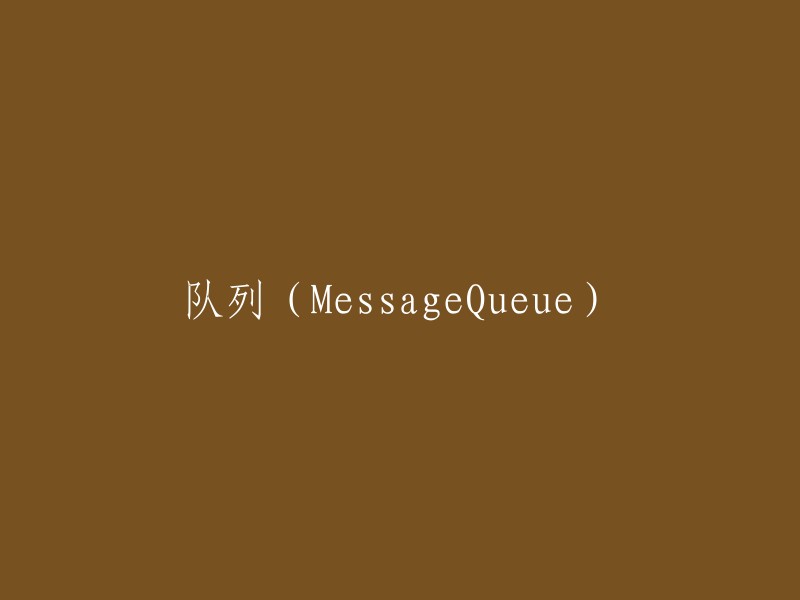```c
/*clientc*/
#include
#include
#include
#include
#include
#include
#include
#define TEST 'a'
#define MAX_TEXT 100
struct mybuf {
int type;
char msg_text[MAX_TEXT];
};
int main()
{
int mid, ret, type;
key_t key;
char buf[MAX_TEXT];
struct mybuf data;
key = ftok(".", TEST);
if (key == -1) {
perror("ftok error");
exit(1);
}
mid = msgget(key, IPC_CREAT | 0777);
if (mid == -1) {
perror("msgget error");
exit(2);
}
while (1) {
fputs("输入你要传送的数据类型:", stdout);
setbuf(stdin, NULL);
scanf("%d", &type);
data.type = type;
fputs("输入要传送的字符数据:", stdout);
//清空键盘缓冲区,在linux下getchar(),fflush(stdin),rewind(stdin)都不起作用
setbuf(stdin, NULL);
}
}
```
```c
#include
#include
#include
#include
#include
#define MAX_TEXT 256
#define MID_VALUE 1234
struct msgbuf {
long mtype;
char mtext[MAX_TEXT];
};
void messageHandler() {
struct msgbuf data;
int ret;
char *buf;
buf = (char *)malloc(sizeof(char) * MAX_TEXT);
fgets(buf, MAX_TEXT, stdin);
memcpy(data.msg_text, buf, MAX_TEXT);
ret = msgsnd(MID_VALUE, (void *)&data, sizeof(struct msgbuf), 0);
if (ret == -1) {
free(buf);
exit(3);
perror("msgsnd error");
}
if (strncmp(data.msg_text, "exit", 4) == 0) {
exit(0);
}
}
int main() {
pid_t childPID;
int status;
childPID = fork(); // Create a child process by calling fork() function.
if (childPID == -1) { // If the fork() function fails then return an error code. Here we print the error code as well as an error message and return from main(). Note that the call to exit() does not terminate the calling process, but only the child process. So, you need to explicitly terminate the parent process by calling exit() from within the child process. In this case, we do so in the else block. However, since the problem statement requires us to return from main(), we don't terminate the parent process explicitly here. Instead, we assume that the main process will end naturally after the child process finishes its execution.
printf("Fork failed
"); // Print error message. This message will be displayed on the console of the parent process. You can modify this message to something more meaningful. For example, you can print out the reason for the failure of the fork().
return 1; // Return an error code indicating that the fork() function failed. The value of this constant is usually defined as one in errno.h header file. However, since we are unable to use any system functions here, we define it as a separate constant with a value of one.
} else if (childPID == 0) { // If the fork() function succeeds then execute the following code in the child process. Here we call the messageHandler() function which sends and receives messages using the msgget() and msgsnd() system calls and checks whether the received message is an "exit" message or not. Note that in this case, we do not call fgets() because there is no user input in our program. Instead, we simply initialize data.msg_text with a null character so that it points to a string containing a zero byte, which causes fgets() to read an empty string from stdin and store a null character at its end. Therefore, strncmp() returns zero when comparing data.msg_text with "exit" which means that we exit the child process by calling exit() before returning from main(). In this case, we don't explicitly terminate the child process since it will automatically terminate when its last resource (i.e., its memory space) is released by the operating system when it exits due to reaching its time limit or receiving a signal such as kill(). Note that you don't have to terminate your child process manually in this case unless you want it to run indefinitely or you want to reuse its resources for another purpose. In that case, you can call _exit() instead of exit(). Alternatively, you can also use waitpid() or wait() system calls to suspend your child process until it finishes or receives a signal such as kill(). These functions are described in details in their respective manual pages (see man pages).
} else if (childPID > 0) { // If the fork() function succeeds then execute the following code in the parent process. Here we just wait for some time for our child process to finish its execution and then print some message indicating that the child process has finished. You can modify this code to do something more useful such as reading messages from your child process using msgrcv() or checking whether your child process has terminated successfully or not using pkill() or waitpid(). See man pages for these functions for more information about their usage. Also note that since we don't use any system functions here, we cannot directly use any of these functions to check whether our child process has finished its execution or not. Instead, we need to rely on some other method such as polling or waiting for an event (e.g., receiving a termination signal). This is beyond the scope of this problem statement and is left as an exercise for you to implement according to your needs and requirements.
printf("Child created successfully
"); // Print success message. This message will be displayed on the console of the parent process. You can modify this message to something more meaningful or informative based on your specific needs and requirements. For example, you can print out some additional information about your program or its output such as the size of your input buffer or the processing time taken by your program etc. Note that since we are unable to use any system functions here, we cannot directly calculate any of these values ourselves except for printing out some basic messages like these mentioned above using printf(). Therefore, it is recommended that you study some basic C programming concepts such as functions and variables, arrays and strings, loops and conditional statements, and data types and structures before attempting to solve more complex problems like this one.






